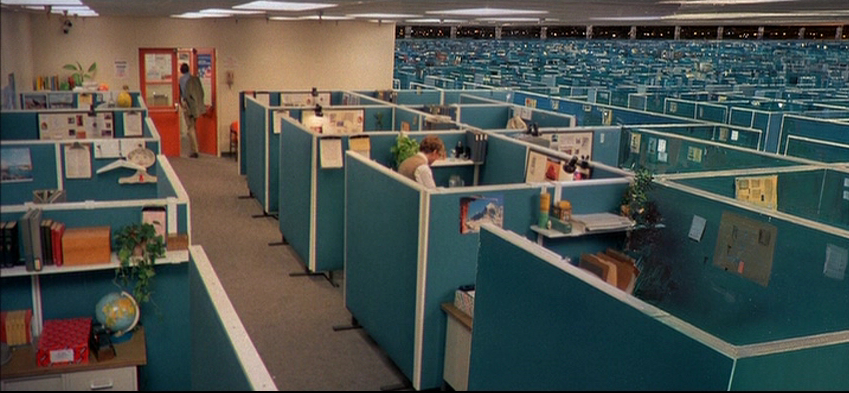Episode 041 - Why we work
I've questioned this for all of my working life. What drives us to work? What is the real reason why we do what we do? And in this episode not only do I explore why, but I also explain the dangers of not working, how retirees run the risk of psychological issues, depression regardless of when they retire and what must be understood in order to successfully transition from wage slave to financially independent and survive mentally.

Click on the player above to listen to the episode or download it. You can subscribe to the RSS Feed here.
Show Notes
Why do we work? Psychologist Barry Schwartz wrote a book, “Why we work”, which explores this. He makes some basic summary statements on this, such as:
- Satisfied people do their work because they feel that they are in charge
- 90% of the world’s workers find work to be a source of frustration rather than one of fulfillment
Parallel this with working as an employee vs. working as your own boss
Ultimately we are not looking to “work”. We are looking to address our own egos and the need of validation that we get from “work”. Why do we need validation?
Carl Jung’s theory on this was due to his position that the human ego was the center of our field of consciousness and was the most critical driver in our quest to fulfill human need.
What happens when you stop working? Your ego is unfulfilled. You lose a sense of feeling wanted. You start feeling useless. You wonder why you are still around. You lack a sense of confidence and you start to feel more like a victim.
It is completely reasonable then to parallel that with the findings of the Boeing study in regards to life expectency after one finishes work. At the age of 65, it is far harder to adjust to the needs of your ego than it is at the age of 35 or 45 or 55. The old saying that it is better for the performer to leave the stage with the crowd wanting more. That’s a more likely scenario at younger retirement ages, than at 65.
In 2012, the US Department of Veteran’s Affairs published a study in the journal of Psychiatric Services, showing the toll depression takes on all patients and compares the ages of death among VA patients with a diagnosis of depression. Their study found that those with depression died, on average, five years sooner than those without.
The more you look for evidence of this, the more you will find.
We must look to ourselves first to determine what our own personal needs are in regards to work before we determine if we should stop doing it or not. Because this could be a fatal mistake if you don’t prepare yourself properly for this.
Those that have disposed of the need of ego, such as well trained buddhist monks, show an average life expectency of 85.5 years in Japan. That is almost 10 years longer than most US male citizens, based on 2016 data. Monks train for decades to accept an ego-less existence, to try and reduce or remove the concept of “I”. I mean try doing that. Try to think of things without involving yourself, your reaction, your feelings, etc. Can you do that? It’s basically impossible. Yet the quest to observe and realize what is going on around us without putting us into the picture to distort it, is a life-long quest. It seems though that those who can do that to some degree are rewarded with a longer life expectancy if you believe the numbers.
So here’s my take on this:
- Be your own boss
- Don’t fall into the 90% of people that are unfulfilled
- Unless you have a quest to be a Buddhist Monk, you have to accept the needs of your ego
- Age does not stop you from having egotistical needs
- You must feed your ego to avoid depression and psychological problems
The problem that most fall into:
They think that the answer to their own personal needs here are provided by third parties.
The idea of a “job” is mistaken to be the solution to their own psychological needs. When they eventually realize it isn’t satisfying them, it is too late. They are now having a dependency relationship with their employer. They doubt or fear leaving employment. They try and quantify this with money (ie. I can’t pay my bills, or what if I can’t get another job, etc) but they never deal with the core problem.
The problem is that they never understood that it was their own responsibility to fulfill their ego and that the search to find what will do that isn’t coming from the shopping mall or some other experience based expenditure. It has to come from them being willing to look inward at who they are, what drives them, what makes them feel fulfilled, and to realize that the validation that their ego craves has to come from other people in some manner.
They put this responsibility with their boss at their job, and when it wasn’t fulfilled, they are empty and seek validation from somewhere else.
Those that still yearn for that validation could be prey to artificial solutions - drugs, alcohol, gambling, etc. The need to find escape from their lack of fulfillment can be devastating or at worse, fatal.
In a society where 90% of people are typically unfulfilled, it is not surprising we have such a huge drug & addiction problem. Those that feel that they are validated, often pretend to find it in their quest for power over others. Validation to a rich person might be to make even more money - keep validating their egos. There is never an “enough” because each day they wake up with an unfulfilled ego, and they just keep doing what they know that gives them a quick fix positive validation. “I just made $100K on the stock market” or “I’m going to buy that business and take over control” or “I will make myself worthy of validation by controlling more people around me”. This isn’t going to work, although it might provide some form of protection from many physiological dangers by having enough money to pay doctors or create security. But ultimately you can’t escape yourself.
Which brings me to my own challenges.
When you have worked in a field for a very long time, you become an expert in that field. That sense of being an expert validates you and helps calm the ego. But eventually you are not getting the “buzz” from it anymore. Maybe it is because the efficacy of people using what you build or the satisfaction from helping someone out in that field becomes less potent. To the point it is so diluted down, that you can’t get that validation anymore.
You seek out new challenges. Maybe you made enough money in your life, where you don’t need to tie income to the ego validation you want from your endeavors. Maybe you learned that being frugal widened the choices you have for what adventures you want to seek out fulfillment & validation. It could be in areas that you know you love doing, but you can’t make money on. Maybe it is pottery, or writing, or music, or film, or volunteering, etc. We do these things because they make us feel satisfied and if someone appreciates what you are doing, your ego gets the validation that it needs.
That’s been my quest. To seek out things that make me feel fulfilled. This podcast is a part of that. That’s why I don’t do it for the money. I don’t try and use money as a way to garner fulfillment. What is more important to me is that I can help someone on their life journey to fulfillment by telling my own story in hope that they won’t make the same mistakes I did, or if they do, that they can obtain the greatest knowledge and wisdom from those mistakes.
But I’m not stupid to think that I have the right to tell you what your own personal needs or fulfillment path should be. I’m not you. You are you. You have to find this out. And you have to be super careful that while others have their own needs, that they don’t drag you into their journey at the expense of your own.
This is the most common situation I encounter. I have companies literally throwing money or the promise of money at me if I give them my one and only life. They want it all and they want it now. We call those things “unrealistic expectations” but the truth is that they are just advertising their own needs to fulfill their egos, and they want you to do it rather than them doing it.
I know someone who is a person with a lot of courage, but also a lot of self-doubt. He was raised in what could be called a “problematic environment”. Father was brutal and violent. He left home to escape that poor environment. He never got validation from his parents in his childhood, so he seeks it out in business. He is a great “entrepeneur” but in reality his ego is just crying out for validation. He wants to be respected for making sales, and growing a business. His own lack of validation in his past means his needs to grow his business does not stop at making $1 million, but he wants it all. He wants his face on the cover of Forbes magazine. He wants to be a billionaire. Lambos, luxury yacht, luxury houses all over the world, etc. He feels that this overkill in search of ego validation comes from money.
In the process he employs those that have their own personal needs of power over others. Much like “thugs” they threaten those that have what they want, only to get the validation from the boss that they are valuable, and the validation that they are powerful from those that they bully.
It is almost like the flawed psychological needs of the guy on top are pushed down to those beneath. And they don’t know if they are validated as the bosses desires change on a whim as he seeks out his own ego validation.
This whole situation is not uncommon. And most of the time it is obvious to anyone as to just how dysfunctional this is. Yet we choose to engage with it, knowing what it is like, each day that we show up for work. We choose to validate it with our presence thinking that in this crazy environment, our own ego needs can be validated. In fact the truth is that those with the worst psychological problems at the top, often push those problems down the chain.
You must ask yourself that if you find you are working in an unfulfilled job, unless you look for solutions that will fulfill you, eventually when you leave that job you will be poorly prepared for what society would call “retirement”. This is one of the main reasons why I never like to use that word. We will, until the day we die, be on a mission to fulfill our ego by seeking out a path that fulfills us and makes us feel useful and validated. If you stop that journey, you will die. We are all like sharks in that regard. We must keep moving forward in order to survive.
If you have fallen into the false narrative that you can find fulfillment that will meet the needs of your ego in a job, in which you are part of a long chain of others trying to fulfill their egos and often at their subordinate’s own expense, statistics will tell you that there is a 90% chance you won’t get your own needs met.
And if you fear leaving that environment because of the financial costs, you should first look to why you have those financial costs in the first place. Are you carrying around unrealistic expectations of your own that having a big house, nice cars, etc. is meeting your own personal ego needs and validating them? Probably not. If you were to sell it all and move to Peru, or wherever, would that not be a better solution for you to regain control of your own life’s journey towards finding your fulfillment?
If any of this rings true to you, know that if you wish to start this long journey, the first step is to reduce your burn rate. Money will be the #1 reason either you fear taking the first step, or you believe you can’t do it. But remember - its not what you make; it is what you keep. So if you reduce your burn rate down so you have more flexibility, then you are one step closer to beginning your own quest.
Remember, you are the boss of you. If you remove the concept of retirement from your mind and you understand that by being your own boss, you must be in the business of something that fulfills your ego. And be willing to pivot if you choose a path and find it does not fulfill you. Often you won’t know that until you do it, and then you see how you feel.
There is no user manual to the human experience either. There are many guidebooks you will find, but you have to be your own author of your own life story. That means starting with Chapter 1 and realizing that it has to be your story. Not your bosses story - your story. If you can find a way to write your own story and still be valuable to your employer in a way that doesn’t threaten your own ego’s needs for validation, then you might be in that 10% of the working population that are in charge of their journey.
But chances are you are not. Therefore you might just want to spend some time thinking about these things as I believe they will help you determine what is right for you and your own path.
Be safe, and good luck.



